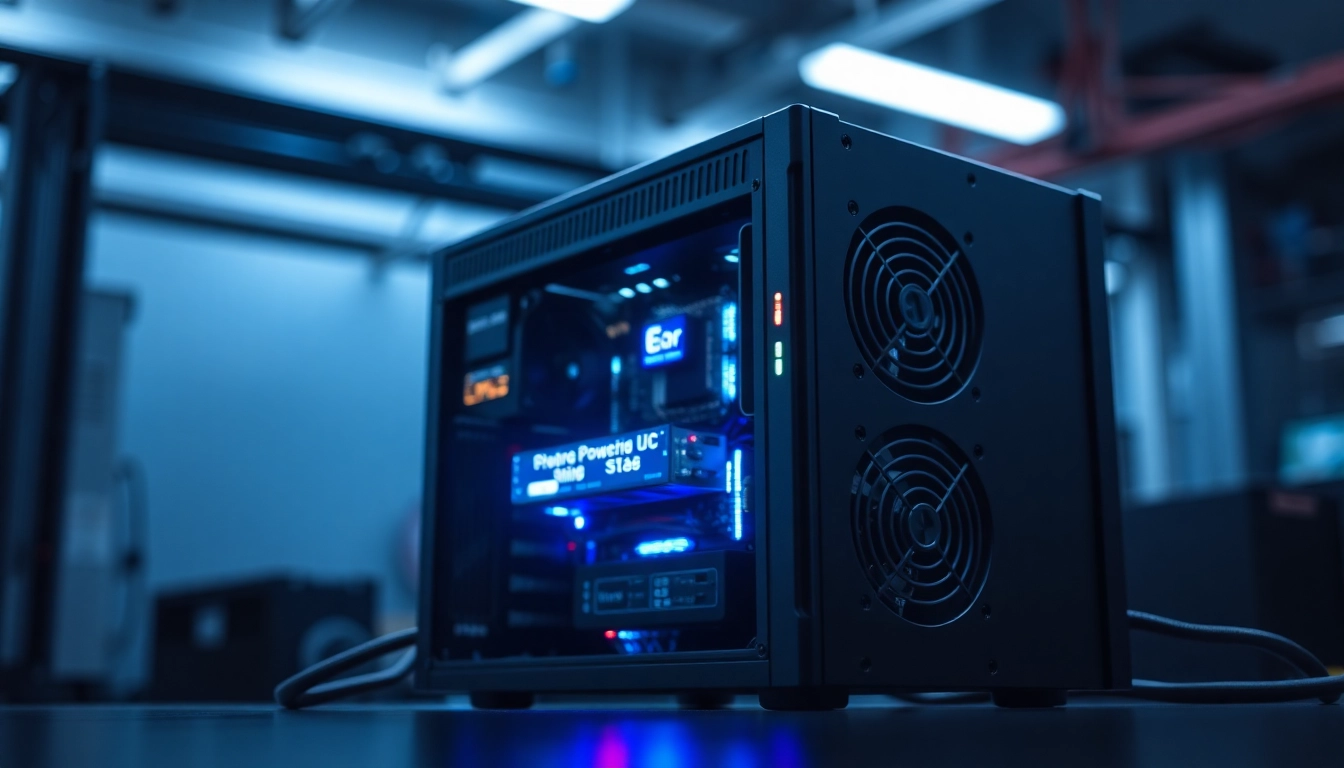Understanding Power Supply Units
What is a Power Supply Unit?
A Power Supply Unit (PSU) is a critical component in any electronic device, responsible for converting the mains AC (Alternating Current) electricity from a wall outlet into DC (Direct Current) electricity that can be used by the internal components of a device. Power supplies can be simple or complex, depending on their application; they are found in everything from personal computers to industrial machines.
Key Specifications of a Power Supply
Understanding the specifications of a power supply unit is vital for ensuring compatibility and effectiveness. Key specifications include:
- Wattage: Indicates the maximum amount of power the PSU can provide. It’s essential to choose a PSU with adequate wattage to support all components within a system.
- Efficiency Ratings: Measured by the 80 PLUS certification, these ratings indicate how effectively a power supply converts AC power to DC, often impacting overall energy costs and heat generation.
- Modularity: Refers to whether cables are fixed, semi-modular, or fully modular. A modular PSU allows easier cable management and can enhance airflow in a PC case.
- Protection Features: Includes Over Voltage Protection (OVP), Under Voltage Protection (UVP), Short Circuit Protection (SCP), and more, which are crucial for safeguarding components from damage.
Importance of Choosing a Reliable Power Supply Manufacturer
Electing a trustworthy Power Supply Manufacturer is pivotal as it directly impacts the performance, reliability, and longevity of your electronic devices. A reputable manufacturer will ensure that their products meet safety standards and performance benchmarks, which can prevent failures that lead to costly repairs or replacements. Furthermore, a reliable power supply can enhance system stability and protect sensitive components from power surges and other electrical anomalies.
Top Power Supply Manufacturers in the Industry
Leading Brands: Who Dominates the Market?
In the power supply sector, several brands are recognized for their quality and innovation. Leading manufacturers include:
- Seasonic: Renowned for its high efficiency and reliability, Seasonic frequently receives accolades for producing some of the best PSUs available, like the Focus and Prime series.
- Corsair: Popular among gamers and PC builders, Corsair offers a variety of modular PSUs, including the RM and RMx series, known for quiet operation and solid build quality.
- EVGA: Known for their exceptional customer service, EVGA power supplies often include innovative features such as ECO mode for variable fan control.
- Thermaltake: This manufacturer provides an array of PSUs designed for various budgets, while also pushing design boundaries with RGB lighting options.
Comparative Analysis of Power Supply Manufacturers
When comparing power supply manufacturers, it is crucial to consider not just performance but also the range of products and their suitability for various applications. For instance, Seasonic and Corsair often lead in efficiency ratings, while brands like Thermaltake cater to a more diverse audience with designs appealing to gamers and DIY enthusiasts. Consumer reviews consistently highlight the importance of warranty length and customer support, which are important factors to account for when choosing a PSU.
Customer Reviews and Brand Reputation
The perception of brand reputation is heavily influenced by user reviews online. Platforms like Reddit provide a wealth of user experiences related to power supply reliability, performance under load, and overall satisfaction. For example, discussions often arise recommending Corsair’s RMx series due to its balance of performance and cost-effectiveness. Positive brand reputation can significantly impact purchasing decisions due to a general trust in well-reviewed products.
Choosing the Right Power Supply for Your Needs
Factors to Consider When Selecting a Power Supply
When selecting a power supply, one must consider several factors, including:
- Power Requirements: Assess the wattage needed by all components in your system. Calculate total requirements based on CPU, GPU, and additional peripherals.
- Form Factor: Ensure that the PSU’s form factor (ATX, SFX, etc.) fits in your case while considering factors like airflow and cooling.
- Efficiency Rating: Choose a PSU with a good efficiency rating (80 PLUS Bronze or higher). A better rating can result in lower electricity bills and reduced heat output, prolonging component life.
- Warranty: A longer warranty period indicates the manufacturer’s confidence in their product. Look for PSUs that offer at least a 5-year warranty.
Common Applications for Different Power Supply Models
Different power supply models serve various applications:
- Gaming PCs: High-output PSUs are required to power demanding graphics cards and processors, typically ranging from 650W to 850W for mid-to-high end builds.
- Workstations: These systems often demand even more power, especially those used for graphics and computing tasks that may require dual-GPU setups.
- Home Servers: For home NAS or servers, lower wattage models can suffice, often between 300W and 500W, focusing more on energy efficiency.
Cost vs. Quality: Finding a Balanced Choice
Budget constraints often affect users when purchasing a PSU. However, it’s crucial to find a balance between cost and quality. While cheaper units may seem appealing, they often lack essential protections and can lead to component failures. Investing in a mid-range PSU from well-reviewed manufacturers can yield longer-term savings by enhancing overall system reliability.
Latest Trends in Power Supply Manufacturing
Technological Advancements in the Power Supply Sector
The power supply manufacturing landscape is continuously evolving. Recent advancements include:
- Smart Power Supplies: New PSUs feature integrated circuitry that allows for real-time monitoring of power usage, articulated through accompanying software applications.
- Improved Energy Efficiency: Manufacturers are continually improving power efficiency ratings by refining their designs, resulting in reduced waste and better performance.
- Eco-Friendly Initiatives: Many brands are adopting more sustainable manufacturing processes and materials to meet environmental regulations and consumer demand for greener products.
Sustainability Practices Among Power Supply Manufacturers
As the global market becomes increasingly focused on sustainability, many power supply manufacturers are adopting eco-friendly practices. This encompasses the use of recyclable materials, decreased energy consumption in manufacturing processes, and compliant designs with environmental certifications. Brands that embrace these changes often see a boost in customer loyalty, particularly among environmentally conscious consumers.
Future Projections for Power Supply Development
Looking ahead, the power supply industry must address growing demands for higher efficiency, renewable energy integration, and miniaturization to support newer technology trends. Expect advancements in modular designs, wireless power transmission, and intelligent voltage regulation to become standards in upcoming generations of power supplies.
FAQs About Power Supply Manufacturers
What Makes a Good Power Supply Manufacturer?
A good power supply manufacturer prioritizes quality, reliability, and innovation. They should provide a comprehensive warranty, clear product specifications, and excellent customer support. Additionally, having high efficiency ratings and positive customer feedback also indicates their reputation in the market.
How to Evaluate Power Supply Efficiency Ratings?
To evaluate efficiency ratings, refer to 80 PLUS certifications, which range from 80 PLUS Bronze to Titanium, indicating how much power is lost as heat during conversion. For instance, a PSU with the Titanium rating loses less than 10% of its energy, making it an excellent choice for performance and cost efficiency over time.
Common Problems and Solutions with Power Supplies
Common issues with power supplies can include inadequate power delivery, overheating, and failure to start. Solutions often involve ensuring sufficient wattage capacity, improving airflow, and using quality surge protectors to prevent damage. In cases of repeated failures, replacing the power supply with a more reliable or higher-rated model may be necessary.



